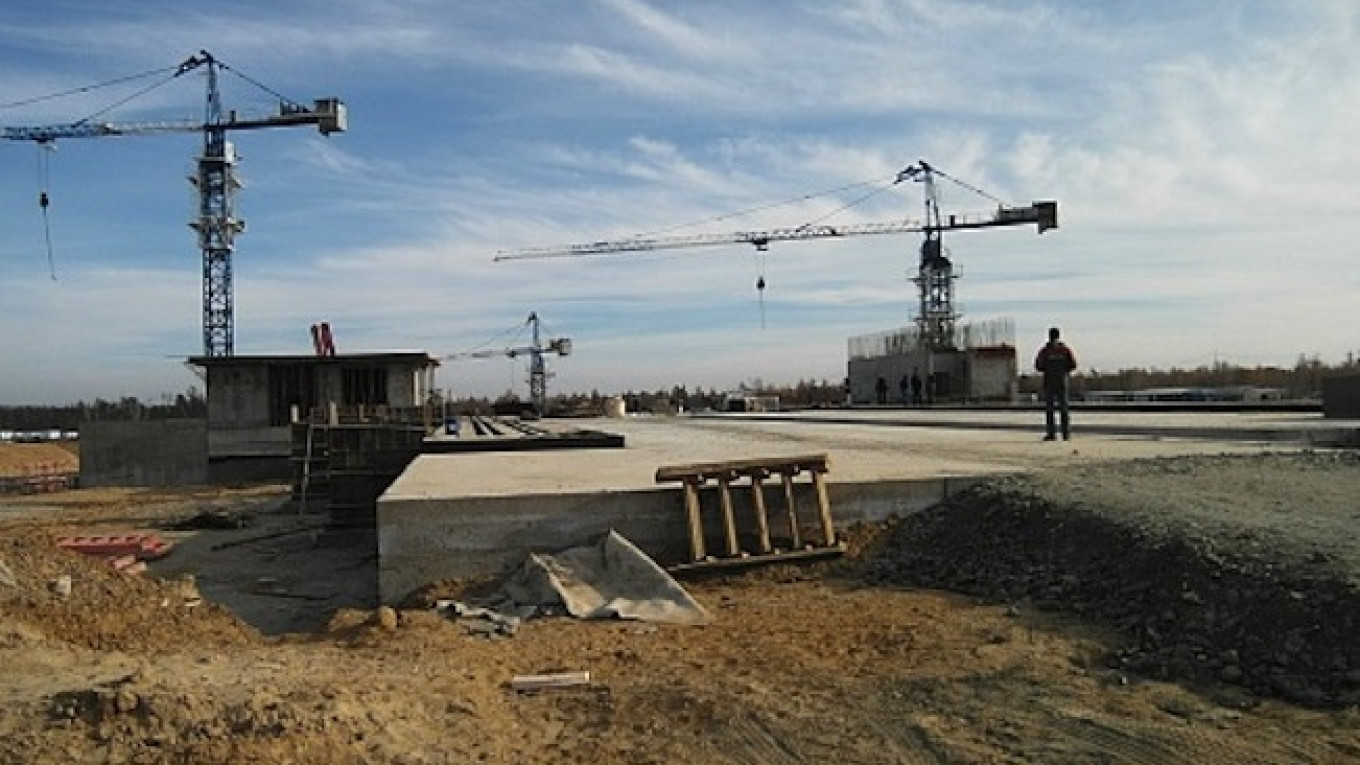With winter on Russia's doorstep, Deputy Prime Ministry Dmitry Rogozin is hounding workers at the Vostochny Cosmodrome construction site in the Far East to complete the spaceport's facilities before the cold sets in.
“Vostochny Cosmodrome workers are trying to complete all concrete construction before the cold arrives, and provide warmth to the facilities for the installation of the technical equipment, which has already been delivered to the space industry in the Amur region,” Rogozin, who oversees the space and defense industries, wrote on his Facebook page.
Rogozin has been increasingly active in the Vostochny Cosmodrome project, which is estimated to be two to three months behind schedule. Eager to make a promised first launch next year, President Vladimir Putin last month pledged 50 billion rubles ($1.2 billion) to expedite the facility's completion.
In February, Rogozin announced that cameras had been installed throughout the cosmodrome and linked to his office in Moscow so that he could monitor the workflow and root out “slackers.”
Putin last month also stripped Roscosmos, Russia's federal space agency, of its role as overseer of the construction project and handed all responsibility to Rogozin.
Putin has visited the cosmodrome several times during its construction and said that, by ensuring Moscow's independent access to space well into the future, the cosmodrome is important for Russia's national pride and security.
Russia currently conducts the vast majority of its launches from the Baikonur Cosmodrome in southern Kazakhstan. Russia leases the isolated Soviet-era missile base from the Kazakh government for $115 million a year.
Roscosmos has said it does not intend to abandon the Baikonur site in favor of the new facility in the Far East, and instead will use both cosmodromes for launches.
But it is not clear that continuing launches from Baikonur would be economical or necessary. Russia already operates an alternate launch facility, the Plesetsk Cosmodrome near Arkhangelsk, for certain kinds of launches. By supporting similar types of operations, the Vostochny Cosmodrome may well make Baikonur superfluous.
By 2018, the Far East facility will be home to manned launches of Russia's new Angara rocket, the country's first rocket of post-Soviet design. Tested for the first time this summer, the Angara is an important project for Russia's space industry as it attempts to show that the country can create something new after surviving for 20 years on Soviet-era technology.
Russia will test a heavier version of the Angara in December, indicating that the country intends to compete with the U.S. and China to build the world's next heavy-launch rocket, a vehicle necessary to send people beyond low-Earth orbit and into deep space.
While Russia works to bring both the Angara and the Vostochny Cosmodrome into full service, China announced Thursday that it has completed the first stage of construction on its new launch facilities at the Wenchang Satellite Launch Center.
Located on Hainan Island, a popular tourist destination, Wenchang will be used to launch China's own heavy rocket, the Long March 5, which will fly for the first time next year, the South China Morning Post reported, citing the Communist Party's official newspaper, the People's Daily.
Contact the author at bizreporter@imedia.ru


